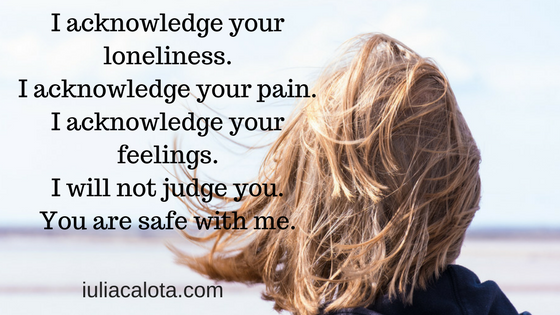When I was single, I used to get two types of reactions. Those who pitied me and always asked the question: ’How come you are still single? Look at you, you’re beautiful, you’re smart, you’re interesting,’ in that tone of voice you reserve for those who discover at a very young age that they have an incurable illness. The others wanted to give me advice or came up with solutions. ’Don’t worry, we’ll set you up with such and such,’ or ’Try this dating website, it’s better than the others,’ etc.
And as much as I preferred advice over pity, I realise now, having become the advice-giver type myself, that sometimes all I wanted was nothing. I wished someone just said to the others: ’Yeah, she’s single, so whatever, can we move on? It’s not like she’s missing a leg or has three heads, and what if she did?’ No pity, no advice, no reaction. Or if any reaction was appropriate, then I would have simply wanted it to be acknowledgment. Acknowledgment that I was doing nothing wrong, that life is just random. That some people meet their soul mate effortlessly and others have to work harder; that some people have more need for companionship than others; that some people never get to share their life with another person but they get to share it with the entire world; that some people have lessons to learn and stuff to experience before love crosses their path. That not everything needs to have an explanation. That not everything needs to be have a cause and an effect.
I have recently been made aware of this when I offered my two cents to someone complaining about how hard it is to be alone when you are a foreigner in another country and all your friends are married with children, on a singles group that I am a member of.
I too was a foreigner in the UK (heck, I am twice the foreigner in France) and had a very hard time trying to understand and negotiate my way through a different culture, especially in the dating arena. I wasn’t used to guys beating around the bush. I was used to guys being rather direct about their intentions. I wasn’t used to polite excuses, I was used to truth-telling. So I drilled the truth out of one guy who kept cancelling on our dates, at the very beginning of my UK dating history, until he admitted he didn’t want to date someone from Romania because we wouldn’t have anything in common. I was so hurt, but thinking back, it was a right he had expressed: to choose what kind of person he wanted to date. It wasn’t a personal affront. He didn’t dismiss me as a person. He just dismissed me as a potential partner because I couldn’t talk to him about old British programs from the seventies. It wasn’t until my British acculturation that I felt confident about going on dates, exchange jokes in true British style and decode messages. I wasn’t feeling like an outsider without rights anymore. I was as entitled as anybody else to pick the person I wanted to be with. This doesn’t mean that I believe a foreigner has to wait ten or so years before going out on dates in a new country, but that, in my opinion, cultural differences play a significant part in the already difficult process of meeting a life partner.
I too felt lonely and impossible to love after being single for six consecutive years. So I empathised. But I also knew that there are ways one can improve their chances to finding love. I have done it myself. It may not guarantee that the right person will come along as soon as you do the work on yourself, but it certainly increases the possibilities. I also argued that action and self-love are the antidote to loneliness.
I was told in response that, like any coupled person, I was good at giving advice (auch!) but that I didn’t understand the situation.
This made me think. I realised in that instant that I had turned into that person who always tells others what to do to find love. I never wanted to be a love expert and, yet, I act like I know better than others what’s best for them. So I retracted my advice and offered acknowledgement instead.
That wasn’t particularly well received either (I think the person just wanted agreement from others in the same situation), but I think it taught me an important lesson. Next time you see a single friend and feel the need to volunteer unasked for advice, close your eyes and say this instead:
’I acknowledge your loneliness. I acknowledge your pain. I acknowledge your feelings. I will not judge you. You are safe with me.’


